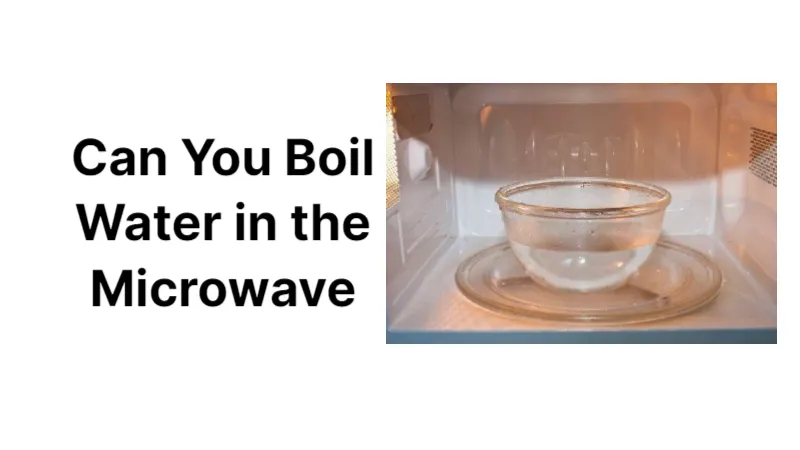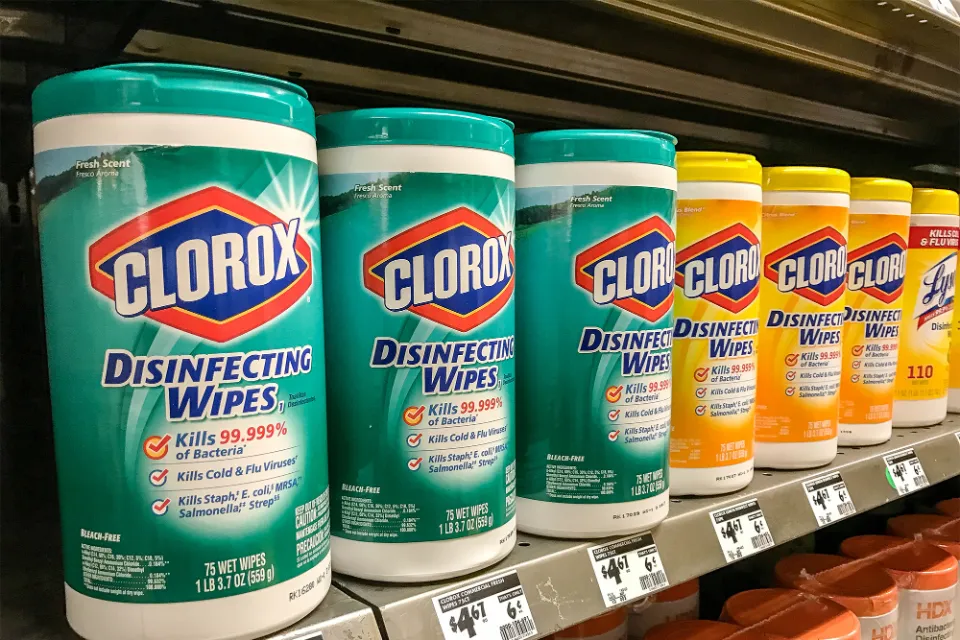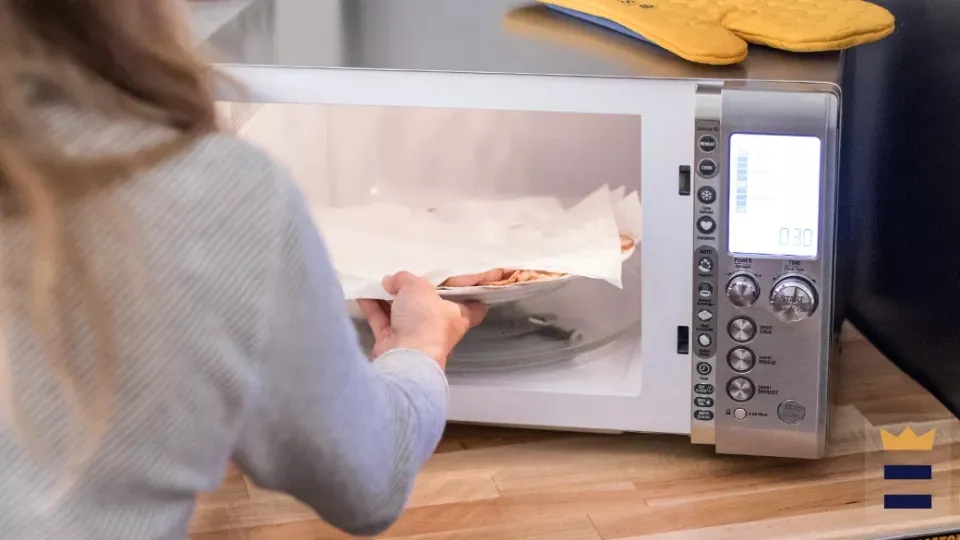This article discusses the pros and cons of microwave water boiling, including safety considerations and preventative measures.
Can you boil water in a microwave? Yes, with the right timing, water can boil in a microwave. However, take care to prevent burning and overheating.
To boil water, simply place it in a cup or bowl that can be used in a microwave and heat on high for 1 to 3 minutes. Stir the liquid every 30 seconds to ensure that the heat is distributed evenly.
Safety of Boiling Water in the Microwave
In order to quickly move and cause friction between water molecules in order to generate heat, microwaves use electromagnetic waves.
Water can be heated to boiling temperature using microwaves, according to a study on how different microwave temperatures affect water’s properties.
However, random areas of water molecules are heated by the electromagnetic waves in microwaves. This means that if the water is not heated for a sufficient amount of time, boiling water pockets could form beneath a layer of cooler water.
As a result, it’s crucial to stir the water before using it. When boiling water in a microwave, you should also use microwave-safe cups.
It’s best to use alternative techniques, such as the stovetop, for better temperature control.
Microwaves’ effects on health are still debatable. Microwave cooking is a safe method of food preparation because there isn’t any concrete evidence to date that it causes cancer.
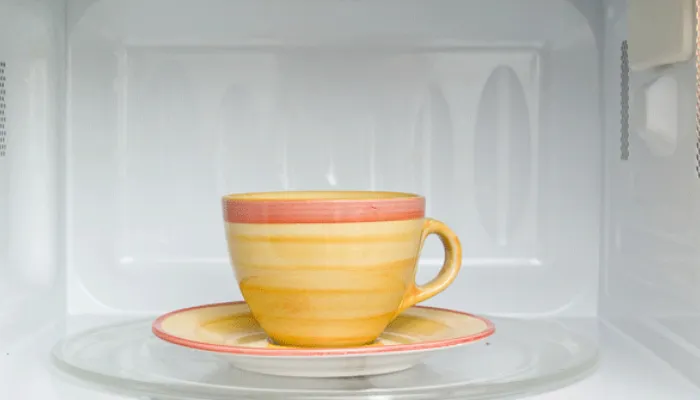
Precautions
Despite how simple and practical it is to boil water in a microwave, there are some safety measures you should take.
Boiling water spills can be harmful. Use hot pads to prevent skin burns when taking water out of the microwave.
Only use approved containers to boil water in the microwave. Use only plastic or glass that has been certified safe for use in a microwave. Keeping in mind that metal should never be placed in a microwave is also important.
Burns are also possible from steam vapor. Therefore, take care to protect your skin and wait to place your hands directly over boiling water until it has slightly cooled.
The power output, settings, and appropriate containers for your microwave should all be familiar to you after carefully reading the instructions.
What Happens If You Microwave Water?
The microwave will heat the water molecules if you microwave it because it is designed to heat water quickly. Water heats up more quickly as a result than many other food types.
As a result, there is a chance that water molecules could become overheated. When you remove a cup or other container from the microwave, for example, water vapor superheats and turns into bubbles that form as soon as water is stirred.
Due to the sudden release of water vapor, the result appears to be boiling to the point of explosion. This explosion does, however, happen under relatively uncommon circumstances.
The cups we use to boil water have invisible scratches that create an uneven surface, unless the cup or container is brand new.
Additionally, if you microwave it for longer than the suggested 2-3 minutes, this superheating may still happen.
Why Should You Never Microwave Water?
Water that has been microwaved has the potential to explode, injuring anyone nearby. Keep in mind that the high temperature above the normal level of the water cannot be detected visually.
On the stove and/or kettle, water seems to take an eternity to heat up. Because of this, you might be tempted to use a microwave to quickly work its magic.
Nevertheless, using your stove or kettle to heat water is the best course of action because using a microwave to do so can be hazardous. The fact that superheating can also happen on the stovetop and not just in microwave appliances should be noted.
Water is heated to a temperature above the usual boiling point, which is how it becomes risky. It is also challenging to stop a microwave when it reaches the boiling point, so the temperature eventually rises above the boiling point.
Above-boiling temperatures are dangerous and can cause serious harm. Colder layers trap steam pressure, which can eventually build up to the point of explosion under the right conditions.
It’s crucial to stir the contents to evenly distribute the heat because microwaves heat food unevenly. Superheated explosion risk will be significantly reduced as a result.
The Perks of Using Microwave to Boil Water
There are many reasons why you might want to microwave-boil water. Microwaves can be very useful for heating small amounts of liquid while most boiling is done on a stove.
Here are some of the advantages, including the ability to make tea and sterilize medical equipment.
- Speed
It takes a lot less time to boil water in a microwave than it does in a different way. When compared to other methods, microwaves can quickly heat water, reaching 212 degrees Fahrenheit in just 3 minutes. Other methods frequently require waiting for an entire pot of water to come to a boil.
- Save Energy
More energy is used to heat water on a stove or in an electric kettle than in a microwave. For instance, compared to an electric stove, a microwave uses 50% less energy. By using less electricity, you can save some money and cut back on greenhouse gas emissions.
- Occupy Less Space
Utilizing space effectively is made possible by the fact that a microwave takes up so little counter space. To save even more space, some microwaves can be mounted above your range or cooktop using hooks or another method.
Coffeemakers and slow cookers, for example, can frequently take up as much space as microwaves. A microwave is a good option if you want a small appliance that still produces great results.
- Effectiveness
When boiling water in a microwave, another advantage to keep in mind is how quickly and effectively it will reach boiling point. In comparison to waiting for the water to boil on the stove, some microwave ovens can heat water two times as quickly.
Additionally, microwaves are excellent for eliminating any microorganisms that might be hiding in your water supply due to their sterilization abilities.
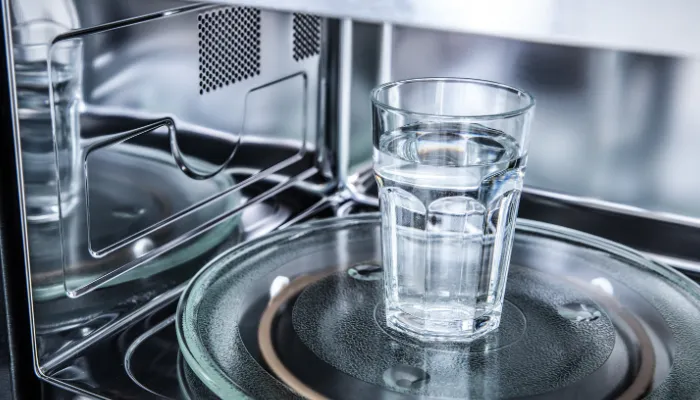
Risk of Boiling Water in a Microwave
The steps that must be taken in order to safely boil water in a microwave are required. The reason is that microwaving water has inherent risks, including the possibility of superheating water and/or burning from hot containers.
- Burning: The boiling point of water is 212 degrees Fahrenheit, or 100 degrees Celsius, which the microwave can heat to. The result is very hot water and the container. You risk being burned or scalded if you expose yourself to either of these. When left unchecked, this results in blistering, which can worsen existing conditions. The most frequent problem with microwaving water is burning.
- Superheating: When water gets hotter than it normally does, a problem arises. As a result, there is a risk that stirring the water could result in an explosion because no water bubbles are produced in the microwave. When you remove the cooked water from the microwave, it may also explode.
When using a microwave to bring water to a boil, there are two main risks. Because the boiling temperature of the water inside the appliance is difficult to regulate, it can easily exceed the boiling point, resulting in burning or overheating.
It can help you to be ready to prevent any further problems if you are aware of the risks associated with microwave water heating.
How Long Do You Microwave Water to Boil?
It takes a cup of water between one and three minutes to boil in the microwave. However, this is dependent on the wattage of the microwave or the volume of water being heated.
The standard rule of thumb to boil a single cup of water in the microwave:
- 600 watt will take 4 minutes
- 700 watt takes 3 minutes
- 800 watt takes 2.5 minutes
- 1000 watt takes 2 minutes
- 1200 watt takes 1 minute.
The cooking time may vary depending on the microwave’s specific power setting. The amount of time it takes to boil water in a microwave depends on the machine’s wattage; the higher the wattage, the faster the process.
How to Boil Water Safely in the Microwave
Although it may seem intimidating and difficult, boiling water in a microwave is actually quite simple. Here is a short and straightforward guide that will show you how to quickly and easily boil water in the microwave without any hassle or fuss.
Choose a Microwave-safe Container
To begin, choose a sizable (microwave-safe) cooking vessel that can hold the volume of water or liquid you intend to use. Glass, ceramics, and paper plates are a few items that can be used in a microwave. Before continuing, make certain that it fits snugly inside your microwave.
Fill Up Your Microwave-Safe With Liquid
You must then fill your cooking vessel to the top with water or another liquid, depending on how much you want to use. Avoid sealing the container to avoid pressure build-up and subsequent shattering.
Place a Non-Metallic Object in Your Microwave-Safe Container (OPTIONAL)
Once your cooking vessel is completely filled, you must submerge a small (non-metal) object, such as a wooden utensil or chopstick.
This is done to avoid superheating, a condition in which a liquid rapidly evaporates after becoming extremely hot but not boiling. By providing a nucleation site for bubbles to form when heat is applied, placing an object in your vessel can hasten the healing process.
Place Your Cooking Vessel Inside Your Microwave
The next step is to put your cooking vessel inside the microwave cavity, making sure that it fits snugly without being too big or too small. If there is extra room surrounding your container, heat may not be distributed evenly during heating, which could harm your microwave.
In the same way, damage will also happen if there is an increase in pressure brought on by containment issues.
Heat in Short Intervals
It is advised to microwave water in shorter bursts no longer than one and a half minutes. Stir or swirl it for an additional 30 to 1 minute.
This will guarantee that heat is dispersed uniformly and that the water doesn’t heat up or superheat. Make sure your water has reached the boiling point, which is 100°C (212°F), by checking it frequently with a thermometer.
Remove the Container
Once your water has heated, kindly take it out of the microwave. When removing your container, exercise caution because hot steam can escape and result in burn injuries. Make sure to use oven mitts or safety gloves to prevent burns and scalding.
Safety Tips to Consider When Boiling Water in the Microwave
Microwaves do indeed make some tasks easier, but they can also raise some safety issues. As a result, here are five safety measures to take when boiling water in your microwave to avoid burns, injuries, and scalding.
- Don’t heat the water for a longer period: If water is heated for an extended period of time, it may become superheated and explode, resulting in severe burns and injuries. Instead, warm the water for only 30 to 60 seconds at a time and then adjust as necessary.
- Use microwave-safe container:Use only a microwave-safe container or a heat-resistant one, like glass or ceramic, to store food.
- Introduce non-metallic objects in the water: Putting non-metal objects in your hot water can help avoid superheating problems.
- Put on gloves or oven mittsbefore handling hot dishes from a microwave. To prevent burns on your hands, always wear this protective equipment.
- Use uneven containers:These containers are abrasive and have cracks that aid in the formation of bubbles, which helps to prevent overheating.
Boiling Water in Microwave: Final Thoughts
Using a microwave is a quick and secure way to boil water. To prevent the risk of burning and overheating, it is necessary to take the proper precautions.
The best way to boil is in small batches at a high temperature for one to three minutes.
Stir frequently to distribute the heat evenly before the mixture reaches the boiling point. When you microwave water, the water molecules will be heated and move quickly, making the water heat up more quickly and superheat.
It is challenging to keep an eye on the water to ensure that it doesn’t exceed the boiling point of 212 degrees Fahrenheit. When in doubt, stir frequently and listen to the water for any burst noise to determine whether the water is overheated.
Always keep safety equipment handy so you can quickly grab the cup with a glove in case it burns or spills. To find out how long to cook something in a microwave, check the wattage power of the appliance; this is how long it takes for water to boil in a microwave.
The good news is that current research suggests that microwave water heating has no negative health effects. Therefore, feel free to use a microwave to quickly bring water to a boil.
To make it happen, just use a cup or bowl that can be heated in a microwave.
Read about
